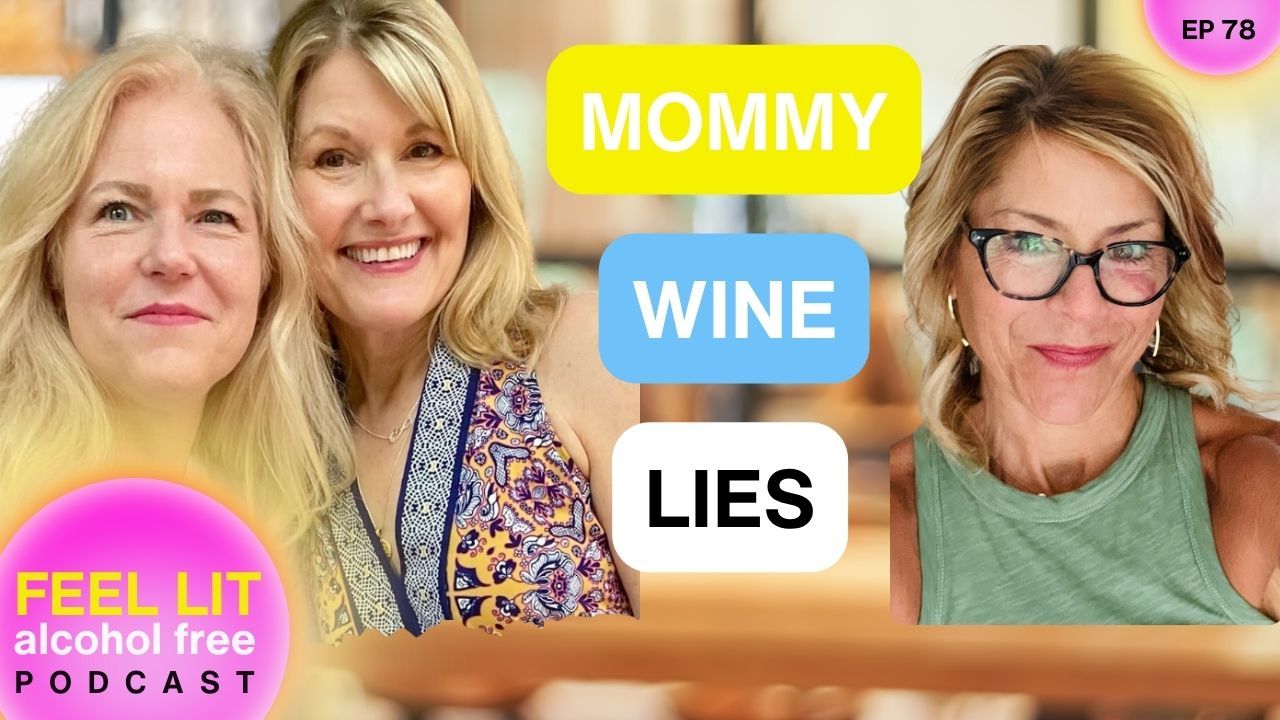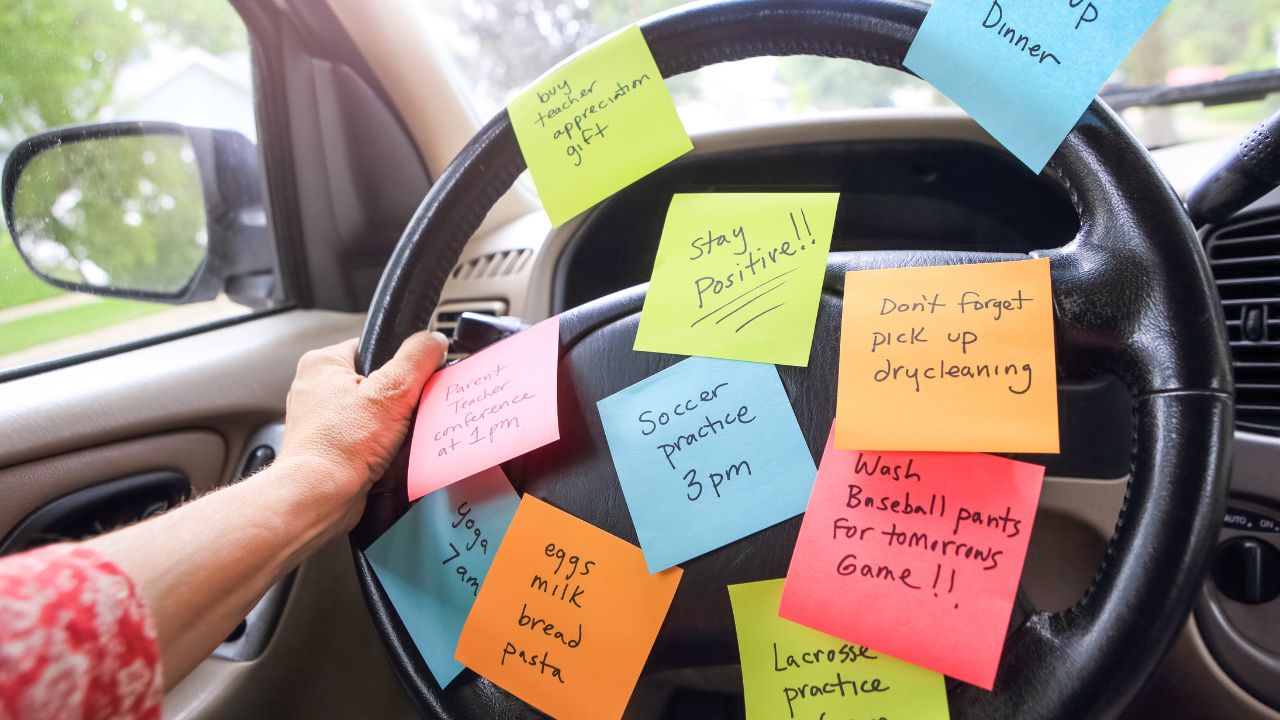Ep. 78 I Gave Up Drinking to Save Myself: Allison's Sober Story
Jul 08, 2025
Listen to the PODCAST Here
Watch the Podcast on YouTube Here

From Chardonnay to Clarity: How Alcohol-Free Living Can Transform Your Life
The Pull of the Pour
For many women, a glass of wine at the end of a long day feels like a necessary reward—a small comfort in the whirlwind of family, work, and life’s mounting demands. But what if that nightly ritual is quietly adding to the weight we carry, rather than helping to lift it? This was the reality for Allison Barber, a former Division One gymnast, businesswoman, and mother of three, who turned her journey away from "mommy wine culture" into an opportunity for profound self-discovery and empowerment. Her candid conversation on the Feel It Alcohol Free podcast sheds light on the emotional, relational, and practical shifts that come with choosing an alcohol-free life.
The Quiet Creep: When Drinking Turns from Celebration to Coping
Allison’s story mirrors what so many women face. What began as social, celebratory drinking became, over time, a way to mark the end of the day and create an artificial barrier from relentless routine and responsibility. Touted as self-care and “me time,” a nightly glass of Chardonnay was Allison’s chosen method to relax. But as she shared, the costs gradually outweighed the benefits: “You start to realize you’re stuck in a cycle of feeling gross in the morning, promising to drink less, only to return to the habit by 5 p.m. the next day.”
For Allison—and for countless others—the real turning point came when other aspects of self-care (like exercise) were no longer possible due to injury or stress, and she saw her drinking escalate. The deeper truth emerged: alcohol wasn’t delivering the relief she expected—instead, it was amplifying her sense of disconnection, both from others and from herself.
Emotional Awareness: Feeling Instead of Fleeing
One of the most significant revelations from Allison’s journey is the vital role of emotional literacy. Growing up in a household where emotions weren’t openly acknowledged, Allison internalized the belief that feelings were obstacles to be suppressed, ignored, or numbed. Alcohol became a tool to avoid discomfort.
Sobriety forced a new approach. Without wine as an emotional anesthetic, she learned to identify, process, and honor her emotions as indicators—not dictators. As she explained, “An emotion is something I experience, not something I am. It doesn’t last forever and doesn’t need to control my decisions.” Tools like emotion wheels, mindful check-ins, and coaching support helped her move from self-abandonment to healthy self-attunement.
Connection is the Opposite of Addiction
Perhaps the most profound lesson is that alcohol, though marketed as a means of social connection, often has the opposite effect. Allison felt increasingly isolated the more she drank, even in a house full of family. Sobriety opened the door to true connection: with her children, her faith, and most of all, herself. “Alcohol freedom,” Allison reflected, “is connection.” It’s the act of returning home to yourself, rebuilding trust and confidence in your own strength and choices.
This reconnection not only changed Allison’s relationship with herself but also transformed her family dynamic. With clarity came the courage to make bold decisions, even when that meant ending a toxic marriage—modeling healthy boundaries and self-respect for her daughters.
Practical Joy: Rediscovering Laughter and Lightness
A common fear on the alcohol-free journey is losing the fun from life, but Allison finds quite the opposite. One of her favorite tools for ongoing wellness is prioritizing laughter and play—whether it’s attending comedy shows, watching funny videos, or letting herself fully experience unfiltered joy. After years of muted feelings and surface-level happiness, she discovered that the fullness of real, “belly laugh” moments often come back in sobriety: spontaneous, childlike, and deeply healing.
Conclusion: Taking Responsibility & Finding Community
Allison’s story is above all a testament to the power of personal responsibility and hope. Change doesn't require a dramatic rock bottom, just a willingness to say, “I am ready for something better.” Coaching, community, and the shared stories of others helped her along the way—and she now models this hope for the next generation.
The promise of alcohol freedom isn’t merely abstaining from a drink; it’s reclaiming clarity, confidence, and connection in our daily lives—one honest conversation and one joyful moment at a time.
___
Listeners have said that our podcast has helped them get alcohol free! So we created Feel Lit 21, a way for you to press your reset button and take a 21 day break from alcohol. Every day you will receive emails with videos, journal prompts, and the inspiration you need to embrace 21 days without alcohol that feels lit!
https://feellitpodcast.com/FeelLit21-sg
Find community and connection on the Feel Lit Alcohol Free Facebook Page: https://www.facebook.com/groups/feellitalcoholfreepodcast
Ruby Williams at Freedom Renegade Coaching https://www.freedomrenegadecoaching.com/
Follow Coach Ruby: @rubywilliamscoaching
Email: [email protected]
